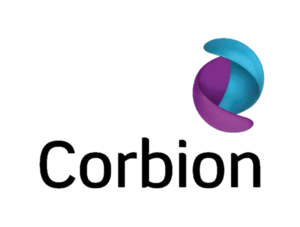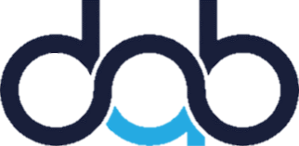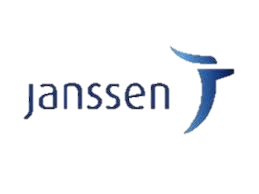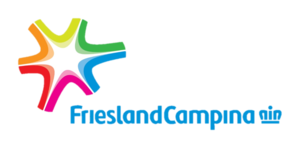What is EngD Designer in Bioprocess Engineering
The two-year Engineering Doctorate (EngD) Designer in Bioprocess Engineering programme develops MSc graduates in (Bio-)chemical Engineering or related academic backgrounds into multidisciplinary specialists, in preparation for a career in the industry. Part of this Engineering Doctorate in (EngD) entails a one-year traineeship at a company while under the supervision of a Delft University of Technology faculty.
What is the EngD BPE?
The EngD is a specialised design traineeship aimed at preparing qualified candidates with a MSc degree for the numerous challenges inherent in an industry-focused profession. The two year programme involves advanced courses that refine the technical knowledge of the trainee, while improving their understanding of economic and managerial aspects of design. Supplementing this is twelve months of hands-on industrial experience, in which this knowledge can be applied. Upon graduation, the trainee will have obtained an innovative attitude, a critical approach, and the capability to solve a wide array of practical design challenges.
Upon graduation, the title ‘Engineering Doctorate’, or EngD, is awarded. This title is recognised by the Royal Netherlands Society of Engineers (KIVI, Koninklijk Instituut van Ingenieurs), the Netherlands. The programme was developed in 1994 by BioTech Delft postgraduate studies, and over 150 graduates have subsequently completed the programme. After a thorough selection, the EngD trainees are employed at the Department of Biotechnology of the university and receive a salary.
FACTS AND FIGURES
Diploma: Engineering Doctorate
Credits: 120 ECT / 24 Months
Starts in: September/February
Language of instruction: English
Salary: EUR 2618,-
Tuition fees: Not applicable
Job opportunities: 95% after graduation
To enhance the level of technological competence in the Netherlands, the Ministries of Education and of Economic Affairs initiated a National Educational Programme for Technological Design. Now part of the 4TU.School for Technological Design, the four Dutch technical universities have offered these two-year post-MSc design programmes at the doctorate level for over 30 years.
The advanced-level programme trains and educates MSc graduates to become certified designers, capable of designing innovative, fit-for-purpose products, processes and equipment. It aims to develop the design skills of the trainees to an advanced level. Emphasis lies on the multi-disciplinary area of the design. It encourages the trainees to actively look beyond the perimeters of their own discipline and recognise the challenges and restrictions imposed by product and raw material supply chains, environment, time and money.
Broadening of knowledge
The knowledge of the Engineering Doctorate (EngD) trainees is broadened by:
- Studying the latest developments from related technical areas and fields other than engineering and natural sciences
- Emphasising the multi-disciplinary context of the technological design (in teamwork, in breadth of knowledge)
- Integrating knowledge from industrial sciences
Deepening of knowledge
Knowledge is deepened by studying a number of specialised subjects, focused on product and process design methodologies and tools, which are the core of the programme.
Recent theories and developments in materials and process technologies for the energy transition and circular chemistry transitions are covered. The acquired knowledge is integrated by working on industrially relevant design case studies during the programme. These case studies enhance the interactions between engineering disciplines (chemical, mechanical, control) and improve the understanding of economic and management aspects of product, process and equipment design and operation.
Teamwork and personal and project management are essential elements of the programme’s training and coaching, as explained below.
Personal coaching
The personal interactions and peer/staff reviews during the traineeship accelerate the development of essential professional competencies. These include the improvement of organisational and planning approaches to solving engineering issues, the development of group leadership potential, and the enhancement of oral and written communication skills. Because the EngD trainees are regularly exposed to situations in which they must adopt a position of advocacy on diverse issues, they achieve considerable growth in their professional maturity within a relatively short period.
The programme’s Engineering Doctorate (EngD) graduates are well equipped to develop their careers in the product and process industry (energy sectors, base and speciality chemicals, circularity in chemicals, metallurgical, food industry, pharma and others), as engineering contractors in process plant and equipment engineering, and in construction and technological research institutes. The breadth of their training and coaching ensures that they pursue an innovation and application-oriented career.
Final attainment level
The programme prepares participants for careers as professional engineers. The learning objectives of the EngD programme are laid down in Article 5 of the TU Delft Regulation on Engineering Doctorate.
At the start of the traineeship, every Engineering Doctorate (EngD) trainee drafts an individual programme and supervision plan, which depends on skills and interests. The programme consists of compulsory and elective components. Advanced MSc-level subjects are offered for trainees who need to fill any MSc-level gaps. The programme coordinator and the team of supervisors must approve this plan. The individual design project topic and the Assessment Committee will be determined during the second half of the first year.
The trainee’s progress and performance will be assessed after nine months. For admission to the second year, all first-year subjects must be completed. The programme coordinator and the team of supervisors perform this assessment.
The first year of the programme consists of coursework and a ‘Group Design Project’ (GDP), while the second year is dedicated to the ‘Individual Design Project’ (IDP) in (collaboration with) industry.
-
The course programme is custom-designed to each student and thus differs from trainee to trainee depending on background and career interests. Some courses are compulsory, however, as all trainees shall acquire and develop a sufficient design knowledge. Courses are organised by different institutions, such as TU Delft, Wageningen University and the University of Leiden. Likewise, BioTech Delft offers Advanced Courses aimed explicitly at EngD, PhD or professional level.
Mandatory courses are Advanced Principles in Product and Process Design; Individual Design Project; Fermentation Technology & Environmental Biotechnology; Group Design Project; Microbial Physiology; Project Management and Techno-Economic Evaluation for Design Engineers
Elective courses, among others are:
- Scale up/Scale Down
- Numerical Methods, Modelling and Simulation Techniques
- Transport and Separation.
There are several advanced courses offered by BioTech Delft postgraduate studies.
-
The compulsory course “Group Design Project (GDP)” has a practical emphasis and intends to provide relevant and real business cases for the EngD trainees to start building up their experience as designers. The trainees will apply the theory learnt during their first year courses and expand their basic understanding of how a design project runs.
During the group design project, special emphasis is made in the Delft Design Template Methodology learnt in the course “Advanced Principles in Process Design”. That includes the identification and implementation of the different design spaces, ranging from 0 to the 8th design space which differ in the level of detail. This includes the supply chain imbedding, process technology and process engineering. The trainees will apply the technical knowledge learnt in the rest of the core module and elective courses. Likewise, they will develop their Project Management skills using the tools learnt in the course.
The main goal of this course is to provide the EngD trainees with a first real case experience with design engineering work that will prepare them for their 2nd year Individual Design Project.
-
The second year is fully dedicated to the Individual Design Project (IDP). Similar to the GDP, a real business case is given where the trainee can apply the advanced design knowledge acquired during the first year. The projects often consist of translating a new research concept into a novel process in industry, identifying bottlenecks in the implementation of certain technologies, scaling up/down, feasibility analyses, techno-economic evaluation, and likewise.
Project acquisition is normally done between TUDelft and its company network acquired throughout the years of collaboration. A project proposal, made by Industry, should be approved by the exam committee of the EngD programme before the project starts.
The selection of the most suitable candidate for each project is ultimately done through an interview by the company or academic stakeholders where applicable.
-
Our network cover small start-ups to large multinational companies in the Biopharmaceutical, Food, Biobased, Bioplastics, Cosmetics and Wastewater Sector, within others. The projects therein encompass a wide range of topics, for instance:
- Feasibility of new grassroots design concepts for upstream or downstream
- Debottlenecking / troubleshooting an existing bioprocess or part thereof
- Scaling up / scaling down a bioprocess
- Modelling of new and existing bioprocesses
- Techno-economic feasibility and a priori debottlenecking of novel research ideas
The table below gives more insight in the companies and topics mentioned above:
Sector Company Topic Food, Bioplastics, Biofuels 


Techno-economic and environmental analysis of novel Bio-based ideas
Waste valorisation
Downstream process design
New process design concepts developmentFood, cosmetics, Health 
Intensified bioreactor and process design Biopharma 

Cell culture bioreactors Biopharma 
Scale-up/Scale-down strategies
Upstream process design
Downstream process design
Modelling of existing processes
Computational Fluid Dynamics
Debottlenecking of existing processesFood 
Downstream Process Design Various sectors Start-ups Techno-economic analysis and a priori debottlenecking of novel research ideas.
Wastewater treatment
- 4TU.SAI: 4TU School for Technological Design Stan Ackermans Institute
- Traineeships Engineering Design (EngD programmes)
- Delft Process & Product Technology Institute (Pro2Tech)
- Faculty of Applied Sciences
- ChemE (Chemical Engineering) Department
- Faculty Mechanical Engineering
- Process & Energy Department
- KIVI (Royal Netherlands Society of Engineers)
- Institute for Sustainable Process Technology (ISPT)
- Technologisch Gezelschap